Report on Specific Needs in Health and Social Care: HSC LO3 Insights
VerifiedAdded on 2024/05/20
|10
|886
|220
Report
AI Summary
This report delves into the understanding of specific needs within the health and social care (HSC) sector, emphasizing the importance of addressing individual requirements to enhance the quality of life and maintain the dignity of service users. It explores various approaches and interventions for supporting specific needs, such as disabilities and diseases, highlighting the significance of evaluating the effectiveness of these interventions through educational, developmental, and behavioral strategies. The report also discusses the impact of emerging developments in medical science and biomedical support, along with relevant legislations like the Mental Capacity Act and Disability Act, which aim to protect and support individuals with special needs, ultimately advocating for a patient-centered approach in healthcare to achieve positive outcomes. Desklib offers a wealth of resources, including similar solved assignments and past papers, to further support students in their studies.
1 out of 10
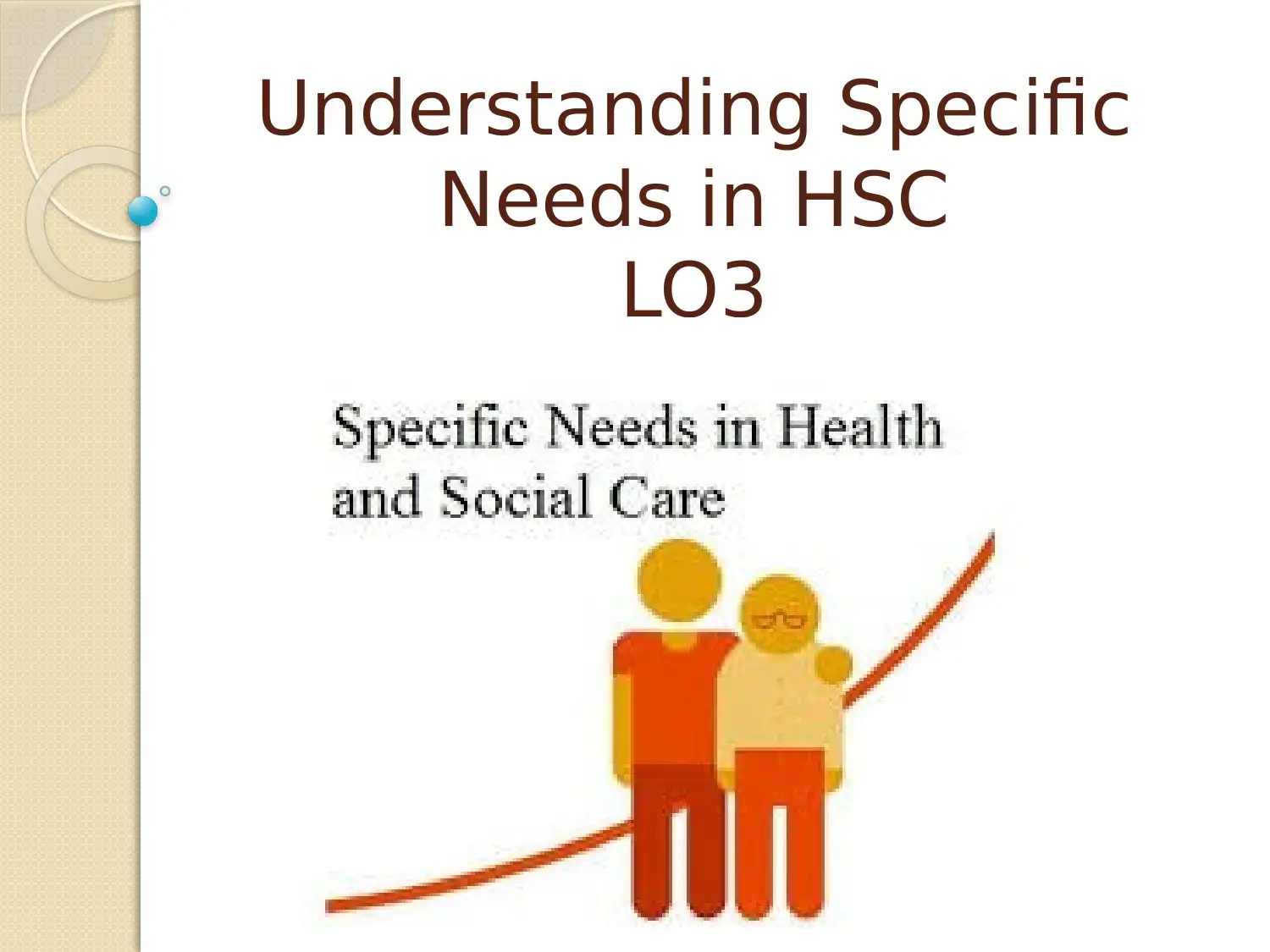
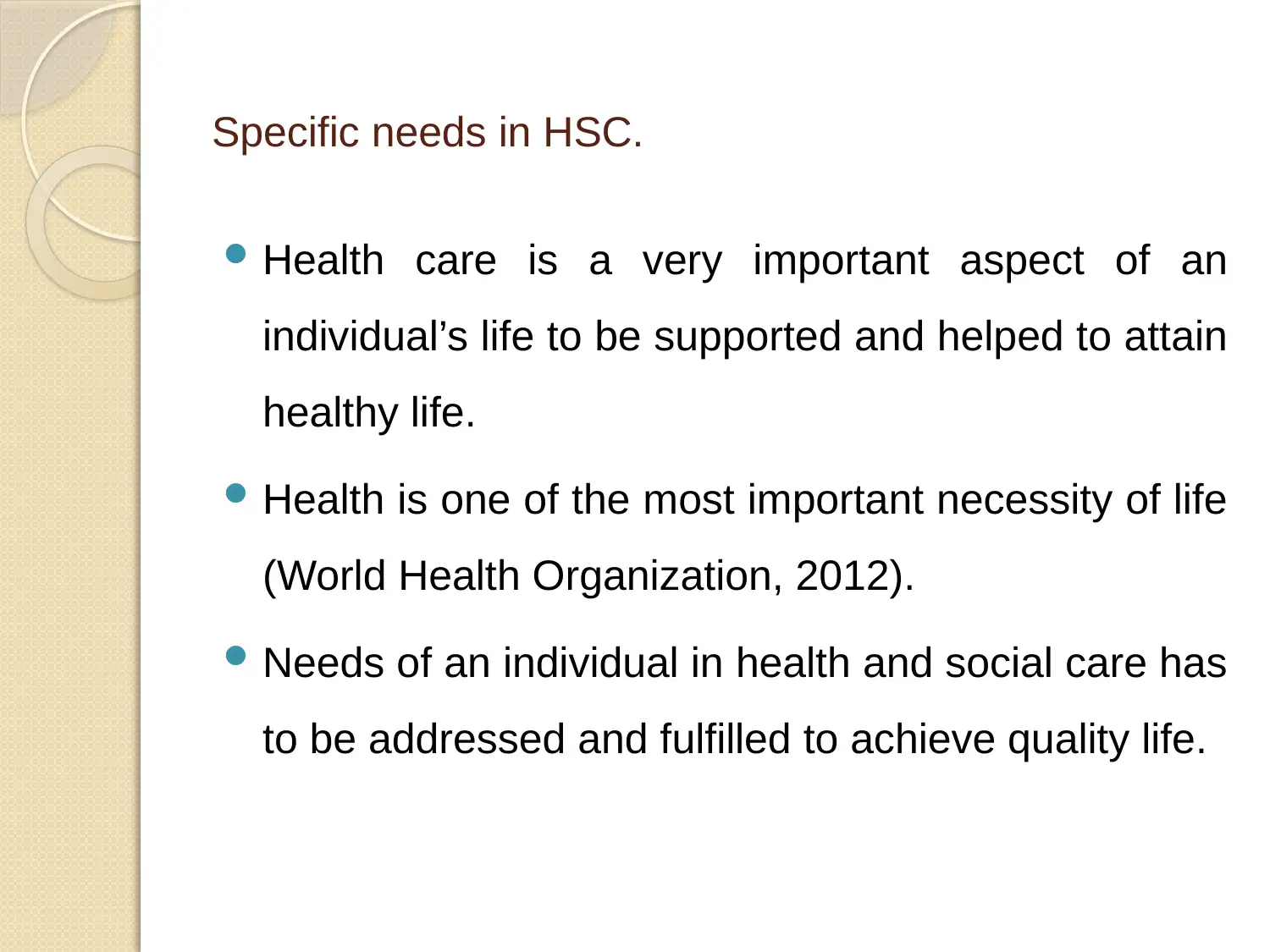
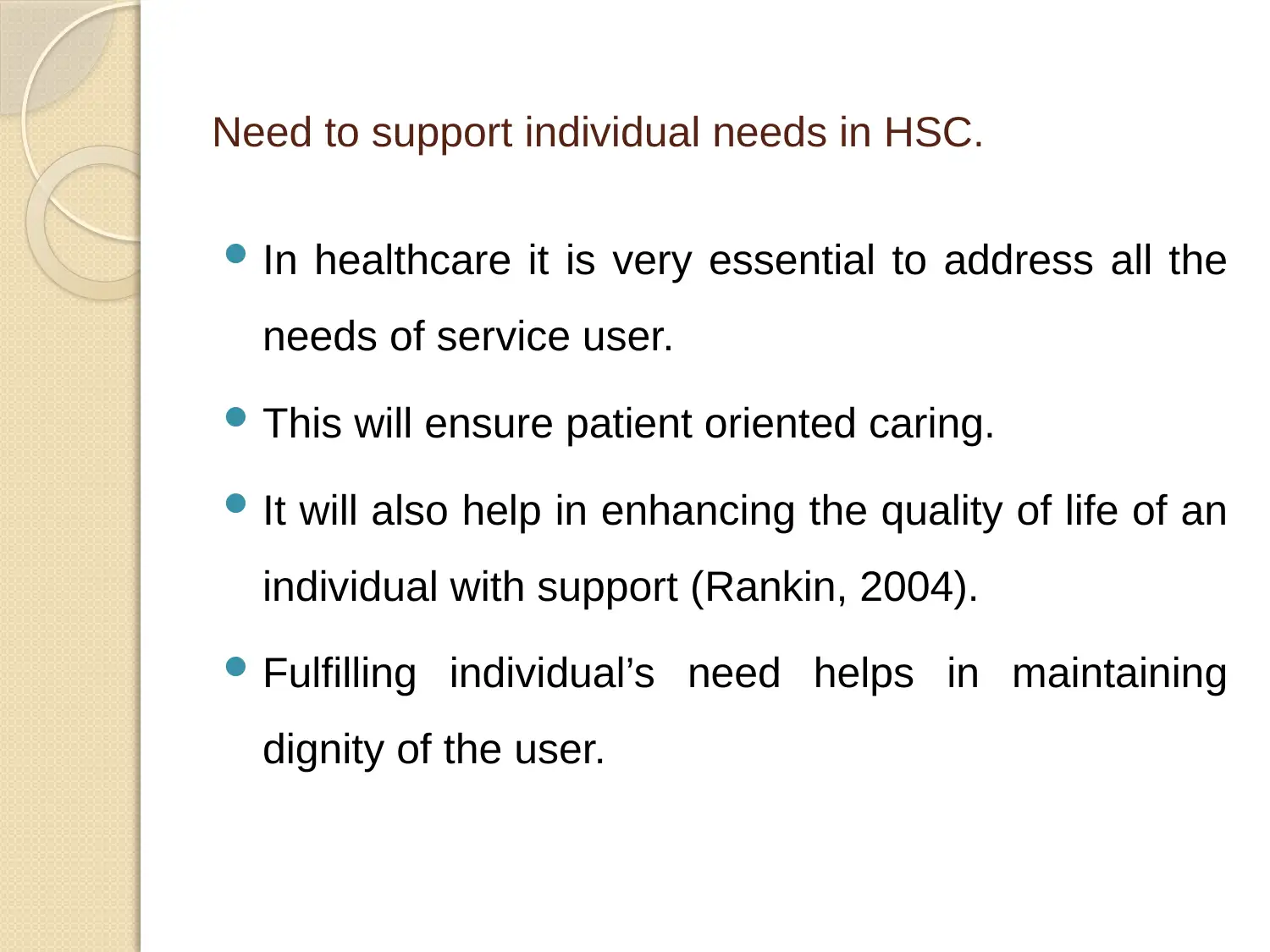

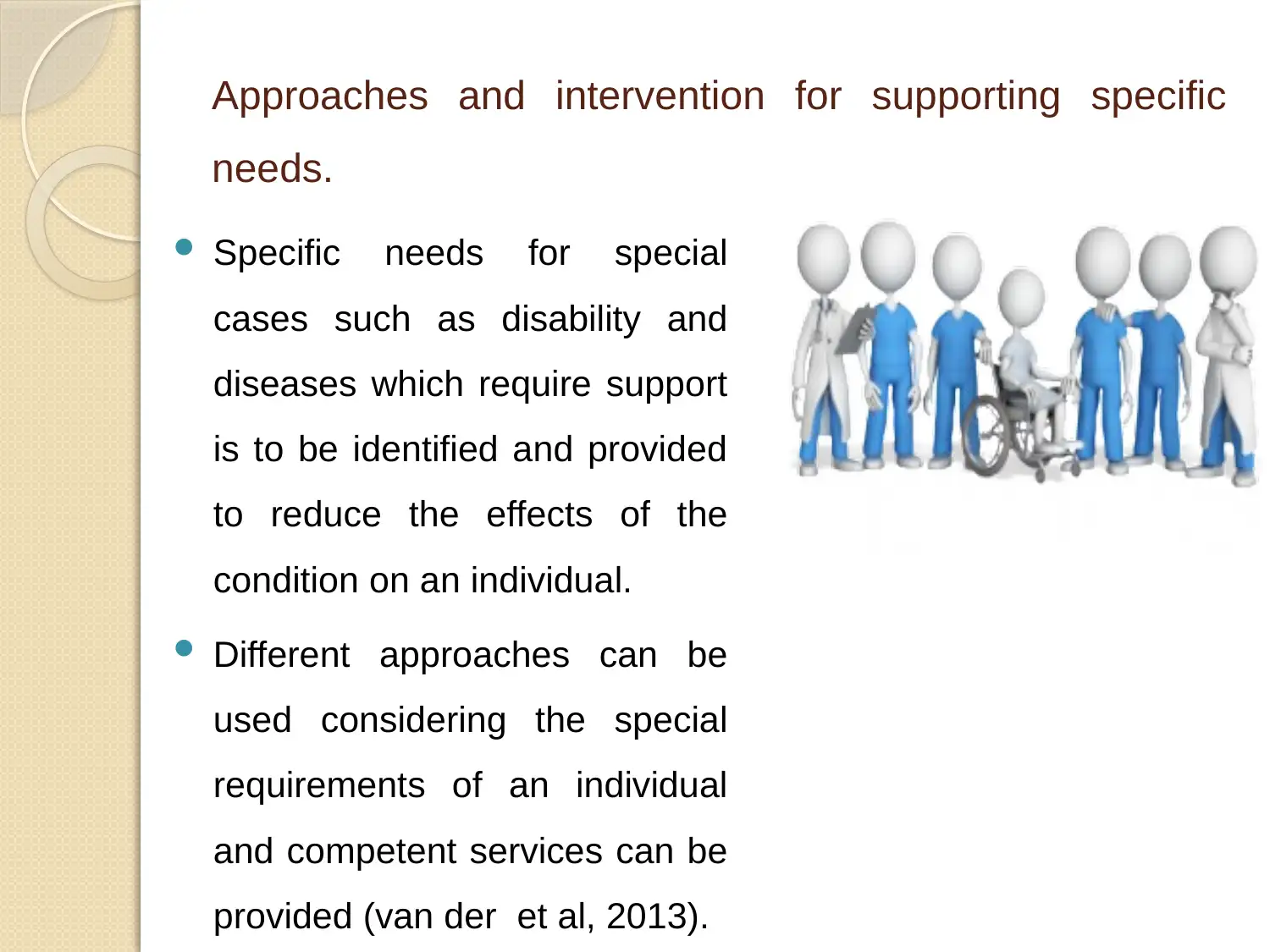
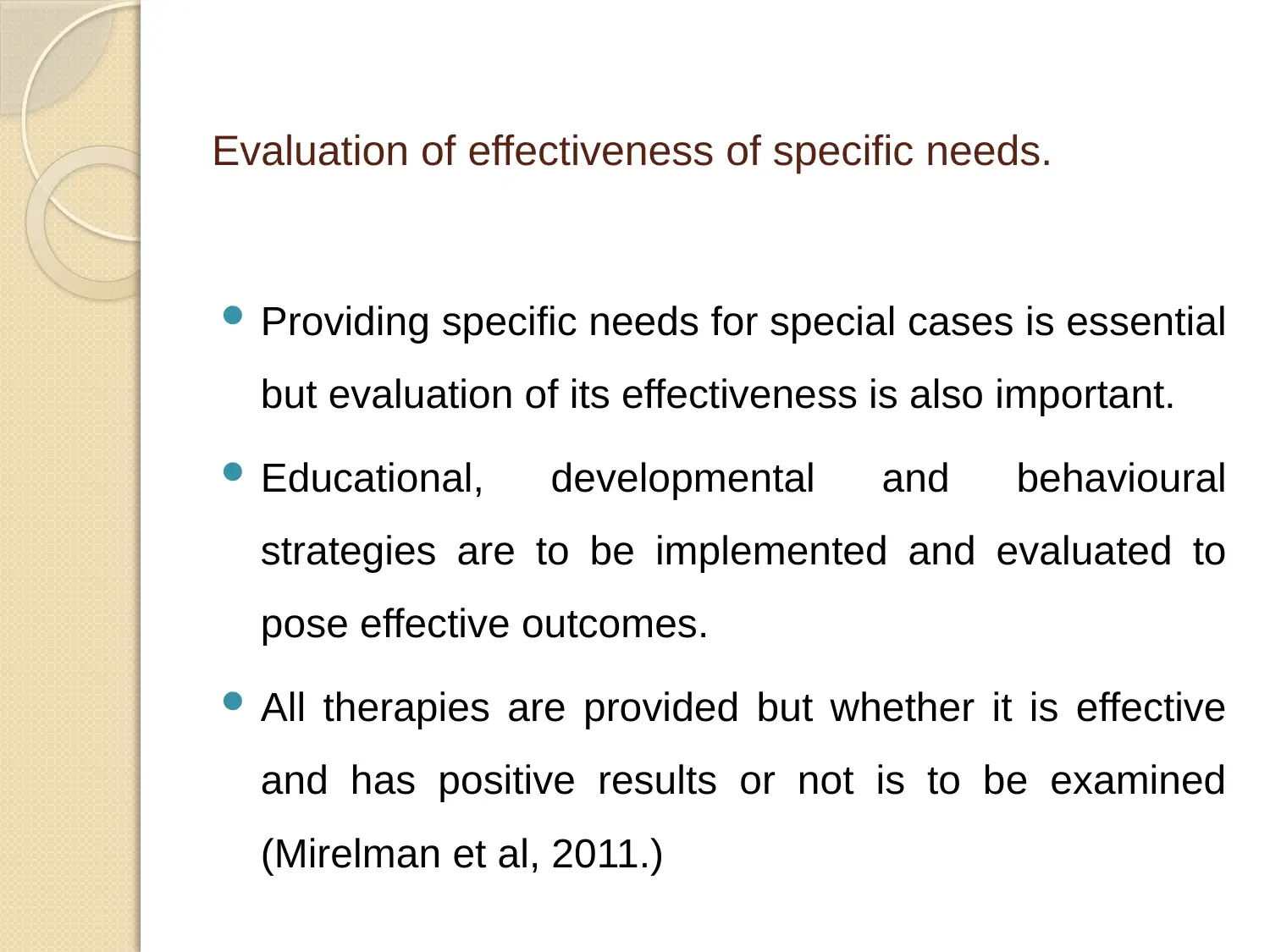
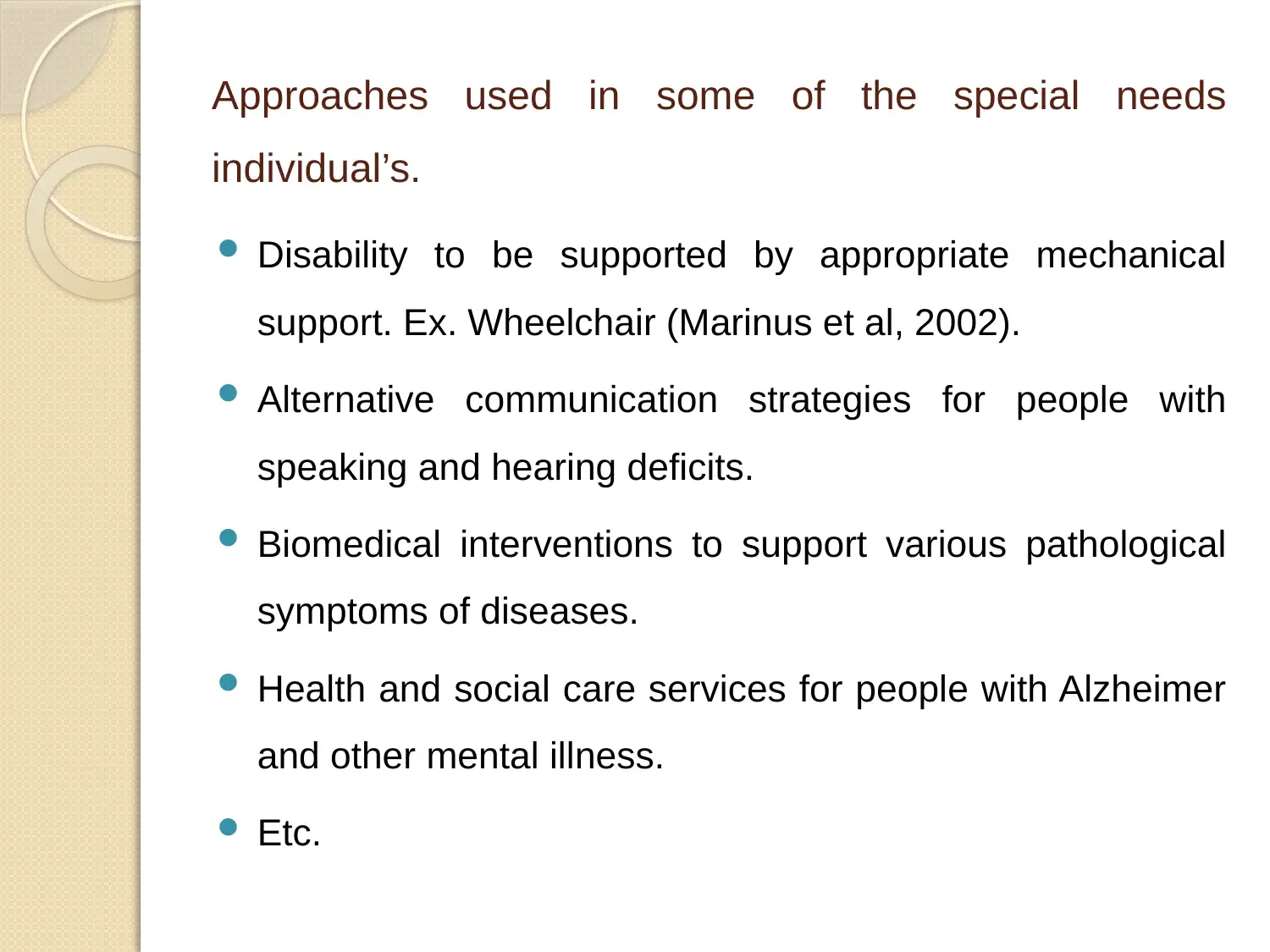
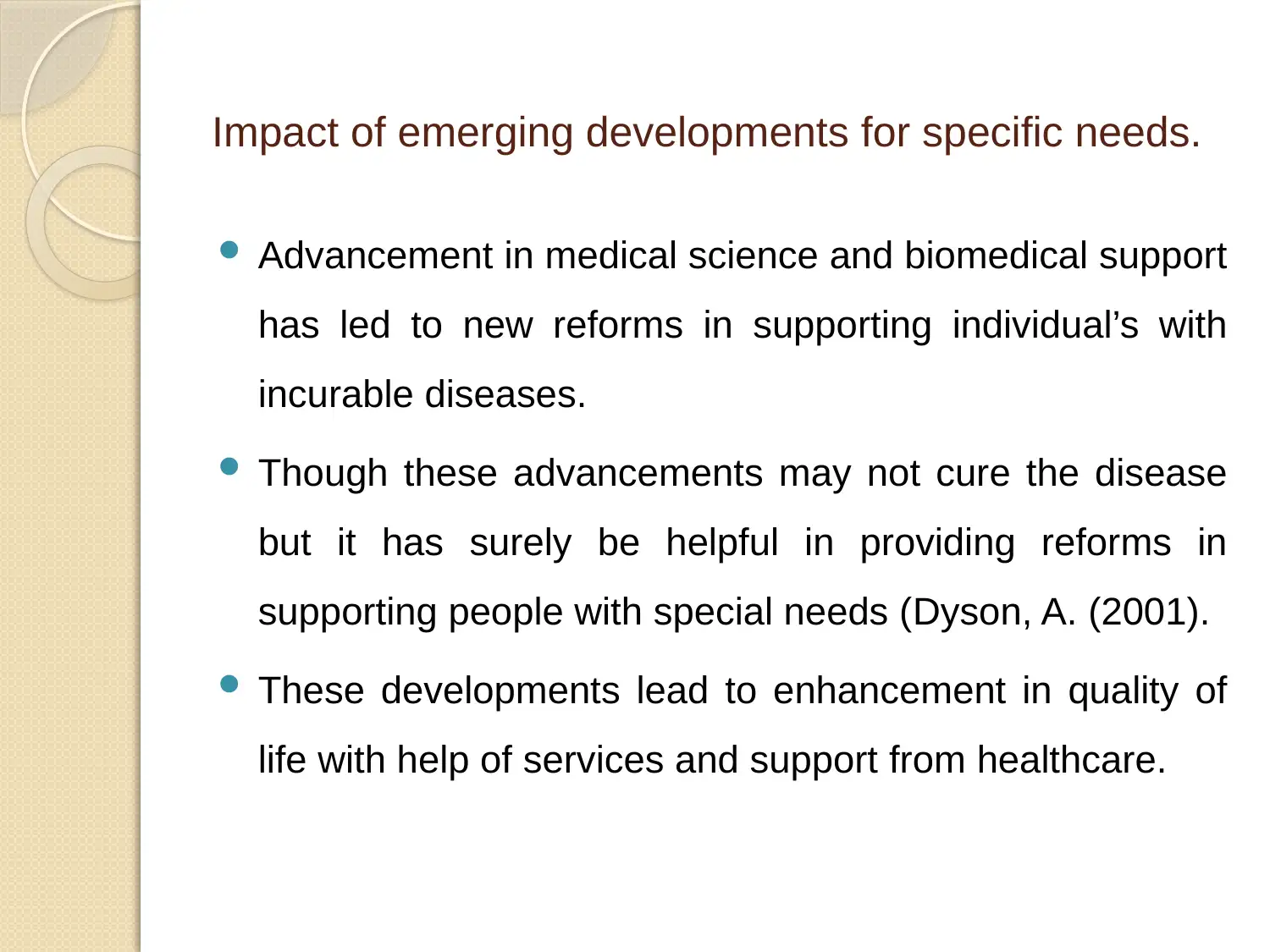
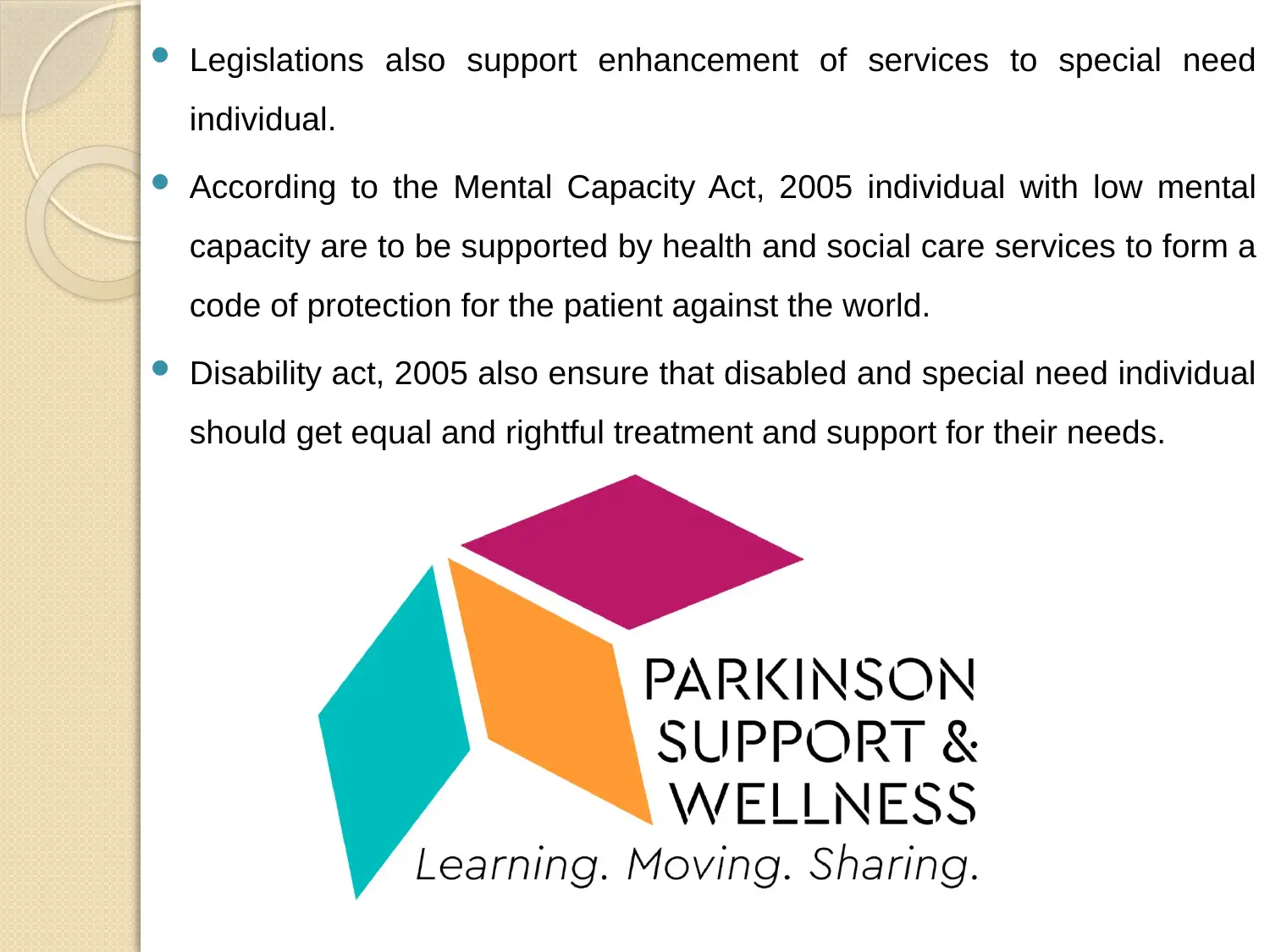
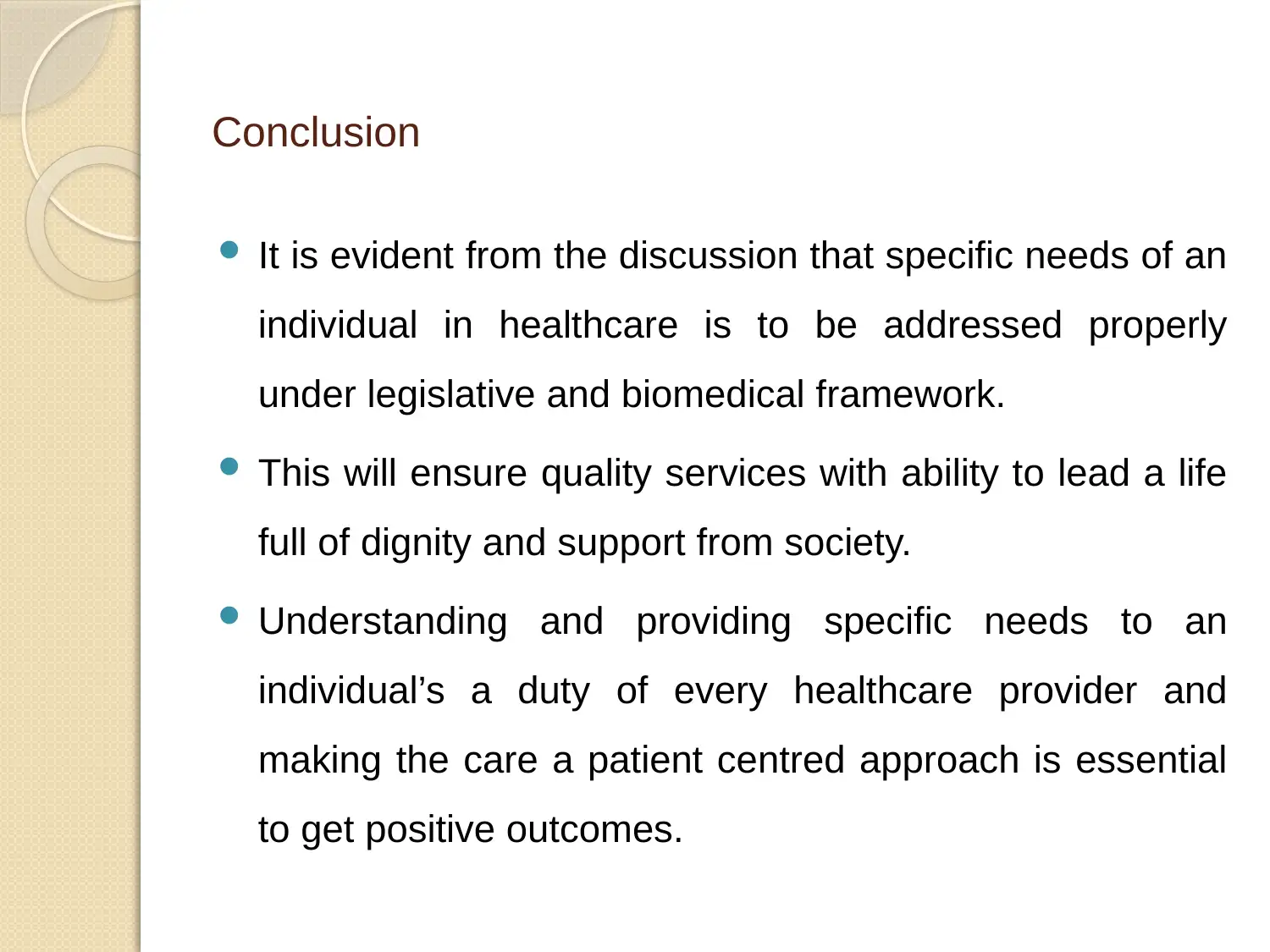
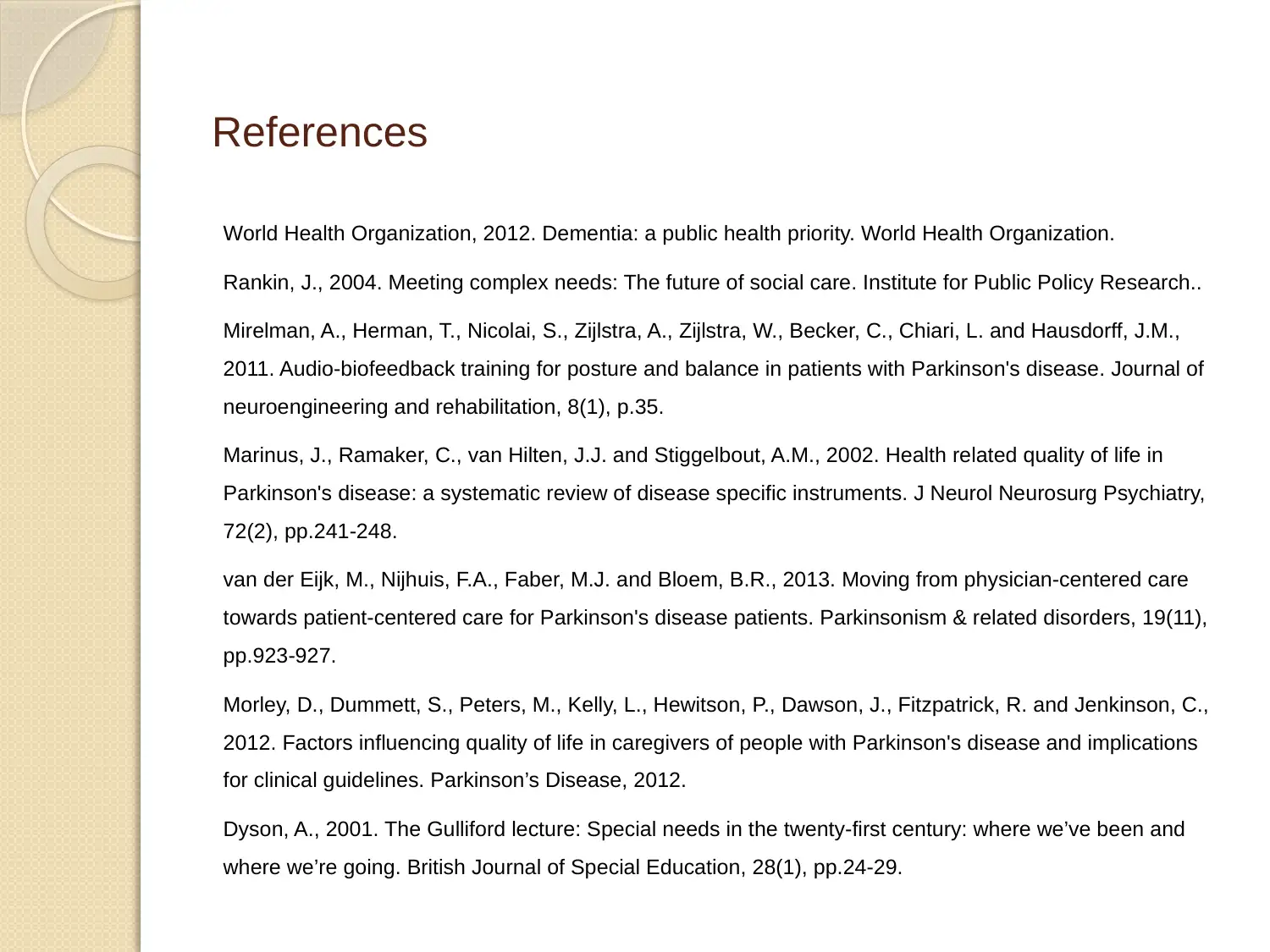






![[object Object]](/_next/static/media/star-bottom.7253800d.svg)